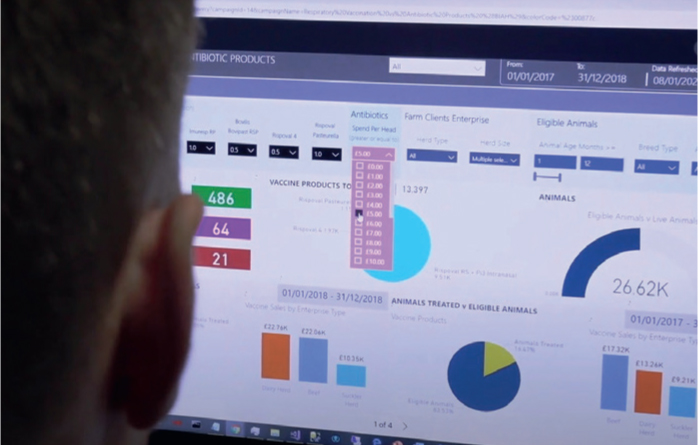With increasing awareness around environmental challenges that can result from farming animals, changes in the way we produce food from livestock are necessary to increase efficiency and mitigate environmental impact. A common way to describe challenges faced by farmers is to talk about sustainability. This is driven by helping farmers produce food from animals efficiently; making sure food is safe for human consumption; caring for the environment by protecting resources; and safeguarding animal health and welfare. Consumer affordability versus farmer profitability is another challenge faced by farmers. One that is regularly beyond their control, often dictated instead by market value, regulatory requirements or availability of imported products, perhaps produced more cheaply and under lesser standards.
Farmers face so many challenges and do not know where their next challenge will come from. At times, the sustainability concept can appear as if we have got things wrong in the past and are doing things retrospectively to put that right. That is not to lessen this important agenda, but to look at how sustainability can be developed further to support the concept that ethical and sustainable food is produced from creating resilient animals and resilient farms.
We all agree producing safe and sustainable food is essential, but should that come at the expense or profitability of farmers who are already doing a good job? This is where resilience and veterinary advocacy is crucial. It has the feeling of meeting these challenges head on, protecting what is important to the industry rather than appeasing others, to the detriment of farm businesses. It is about demonstrating optimal production processes and justifying price over lesser offers. For a long time, our sector kept the farm gate shut to maintain privacy. In doing this, we have left a vacuum into which others can pour speculation. Farmers need veterinary surgeons who are prepared to stand alongside them, to show in facts and figures that what the farmer is doing is safe and wholesome.
The mechanism to strengthen the important work of veterinary surgeons in meeting a farmer's needs is giving them the tools to work efficiently but more importantly giving them insights into animal health and production data. This allows the veterinary surgeon to provide the best possible advice and make decisions that have a positive impact on both sustainability and resilience.
Animal data are fragmented right across the industry. VetIMPRESS brings together data from external sources, permissions it, standardises, validates, and integrates it on a single platform. It helps veterinary surgeons to make a digital transformation in the way they work and at the same time manage the many disparate sources of data available, from government and industry schemes, on farm IT systems and other farm service providers such as milk recording and laboratory results.
VetIMPRESS gives veterinary surgeons and farmers the ability to enrich external datasets by collecting rich on-farm data themselves, accurately and quickly and in a way that it is safe and reliable. The platform brings the external data and veterinary data into a powerful reporting platform, where the veterinary surgeon can access insights, examine KPIs, produce reports, share information with the farmer and help them meet the needs of their customers in the supply chain.

The creation of accurate and consolidated records adds to the provable value of the product as proof of the great work that is being done. It provides confidence in how animal health and welfare are being looked after, and of how things like antimicrobial use has been reduced. Importantly, it allows the veterinary surgeon to make timely and evidence-based decisions and have important conversations with farmers around medicines use. It creates the opportunity to talk not only about the health of the animal but also the economics of the farm and make sure the veterinary surgeon and farmer work more closely together to set and track targets and improvements for the next year.


